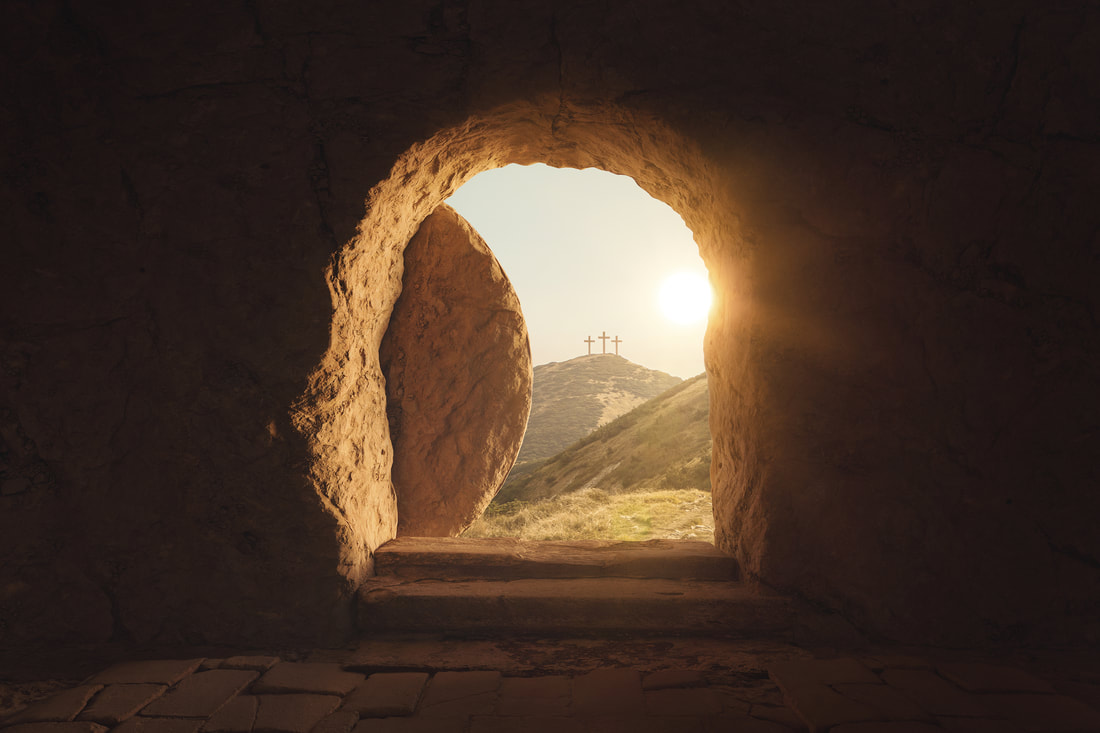|
We may leave our evil path for awhile. But like a dog returning to its vomit, we tend to return to what was bad for us (Proverbs 26:11).
For awhile, we may become religious: Seek salvation, like Israelites searching for John the Baptist; grieve for our mistakes, like Saul’s bitter weep (1 Samuel 24:17, 26:21) and Ahab’s fasting (1 Kings 21:27); believe in Christ’s words (John 2:23-25); leave everything to follow Christ, like the disciple Judas (Matthew 19:27); or have affection for God, like the Israelites committing to follow God’s command (Matthew 13:20-21; Galatians 4:11, 15-16; Exodus 15:1-19; Deuteronomy 5:27, 29). Like the Israelites, we can experience God’s majesty, as at Mount Sinai (Exodus 24:16-18, Exodus 32); numerous miracles (Exodus 13:21-22, 16:14-17, 32:8; Joshua 10:13; Luke 16:31); God’s judgment and punishments (Numbers 11:3, 16:41, 16:31, 21:6, 21:1); and God’s blessings (Deuteronomy 32:13-16, Isaiah 26:10). Pain and suffering can bring us to God (Isaiah 1:5, Proverbs 27:22), but after our misery has subsided, our love for God may disappear quickly (Hosea 6:4). We may behave well because of our love for worldly interest, honor, our children etc. But while we may be good in one area, our wickedness shows up in another. Our original nature is corrupt and is the slave of sin (John 8:23, 34; Romans 7:14; Jeremiah 17:9, 13:23). Unless our nature is changed, our resolution to do good is built on sand (Matthew 7:26). We will return to our filth, gratifying our lust (2 Peter 2:20-22). Without a change in nature, there is no sure foundation for our goodness. We may become worse than before (Mark 4:17, 1 John 2:19, Hebrews 10:38, Luke 14:29-30, Ezekiel 18:24). By ourselves, we cannot change our nature (John 3:4). We need God to give us a new heart and make us holy. With our sinful nature changed by God, we will have a new understanding; new conviction; and a new appetite for God’s word and imitating God’s character by doing just and holy things. Summarized from a Jonathan Edwards sermon: https://www.youtube.com/watch?v=DQZosI2QMPI&t=124s 愚昧人重复行愚妄事 人可能暂时离开邪恶的道路, 但就像狗回到呕吐之物一样,他往往倾向于回到对自己不利的状态(箴言 26:11)。 我们在一段时间内可能会有虔诚的表现。我们会像那些去找施洗约翰的以色列人一样寻求救赎; 像扫罗一样为自己的错误悲痛哀哭(撒母耳记上 24:17, 26:21);又如亚哈一样为罪禁食(列王纪上 21:27); 也相信基督的话(约翰福音 2:23-25); 又像使徒犹大一样放下一切跟随基督(马太福音19:27);或者像以色列人承诺遵守上帝的命令一样热爱上帝(马太福音 13:20-21; 加拉太书 4:11, 15-16;出埃及记 15:1-19; 申命记 5:27, 29)。 像以色列人一样, 我们可以经历过上帝的威严,例如在西奈山(出埃及记 24:16-18, 出埃及记 32); 也经历过许多神迹(出埃及记 13:21-22, 16:14-17, 32:8;约书亚记 10:13;路加福音 16:31);又经历过上帝的审判和惩罚(民数记 11:3, 16:41, 16:31, 21:6, 21:1);并且经历过上帝的赐福 (申命记 32:13-16, 以赛亚书 26:10). 痛苦和折磨可以把我们带到上帝那里(以赛亚书 1:5, 箴言 27:22),但在痛苦平息之后,对上帝的爱可以很快就消失了(何西阿书 6:4)。 因为爱世俗的利益、荣誉和儿女等的缘故,我们可能表现良好。但我们在一个领域可能做得不错,邪恶却会出现在另一个领域上。 我们的本性是败坏的,我们都是罪的奴仆(约翰福音 8:23,34; 罗马书 7:14; 耶利米书 17:9, 13:23)。除非本性改变,人行善的决心是建在沙土之上(马太福音 7:26),他将回归到原本的污秽,满足自己的情欲(彼得后书 2:20-22)。 如果没有本质的改变,我们的善良没有坚定的基础,我们可能会变得比以前更糟(马可福音 4:17, 约翰一书 2:19, 希伯来书 10:38, 路加福音 14:29-30, 以西结书 18:24)。 我们不能靠自己改变本性(约翰福音 3:4),需要上帝赐给一颗新心,使我们成为圣洁。 上帝改变我们的罪性以后,我们将有新的认识、新的信念、和新的对上帝话语的渴慕。我们将有新的热忱,行公义圣洁之事以效法上帝的品格。 Major conflicts or contradictions in life can lead us to search for God. In Exodus 3:1-14, Moses saw a bush on fire that didn’t burn up. That unexplainable event attracted Moses away from tending his flock and brought him to God.
A disrupting event in our life can turn us away from our normal path. Some examples include the bishop’s reaction to Jean stealing his stuff in Les Miserables; being unable to graduate due to flunking a class we thought we knew well; and feeling deeply lost after getting what our hearts intensely desire. When Moses walked over to the burning bush, God called to him, “Moses! Moses!” In the Bible, the doubling of a word implies emphasis, and doubling a proper name conveys emotional intensity. God wanted to be closer to Moses, yet His holiness forbad Him. From a distance, God told Moses He would rescue the Israelites through Moses (v8, 10). Similarly, God wants to be closer to us, but His holiness forbids Him to be close to sinful humans. So, through Christ, God came down to save us. Christianity has a lot of contradictions that are beyond our understanding. For example, many things in life seem to be predetermined, but we also have free will. Christ’s teachings in the Sermon on the Mount demand perfection, yet Christ is extremely merciful and loving. He sacrificed Himself on the cross, taking our place to be consumed by the wrath of God the Father. It is difficult for us to understand how we, as sinners, could be filled with Christ’s righteousness, beauty, and glory, or how our God can be both full of love and truth, mercy and holiness. God could be using contradictions to lead us to Him. Keep exploring, and God will reveal Himself to you. Summary of a sermon by Tim Keller, titled, “The Search for God” https://gospelinlife.com/downloads/the-search-for-god-6554/ 神如何喚醒我们? 生命中的重大冲突或矛盾可能带领我们去寻找上帝。在出埃及记3:1-14,摩西看见一棵在火中却没有燃烧的丛树。这个難以置信的事情吸引摩西离开了他照料中的羊群,将他带到上帝面前。 在生活中一些打破日常平静的事件可能使我们转离日常的轨迹。例如在悲惨世界中,主教如何应对窃取他的东西的冉阿让; 又如因为考试不及格而不能毕业,但考的一科却是自己以为很有把握的课程; 亦或是终於得到心中强烈渴望的东西之后的心灵空虚和失落。 摩西走向燃烧着的丛树时,上帝呼唤他,“摩西!摩西!” 在圣经中重复一个单词表示强调,重复一个名称代表强烈的情感。上帝想要更接近摩西,然而祂的圣洁禁止祂前往。上帝从远处告诉摩西祂将用他来拯救以色列人(出埃及记3:8, 10)。 同样,上帝希望更接近我们,但祂的圣洁禁止祂接近罪人。所以,上帝通过基督降临拯救我们。 基督教有许多表面看似矛盾而超出我们理解的地方。例如生活中的许多事情似乎是预先确定的,但我们也有自由的选择;又如基督的教导非常严格,像在登山宝训中的完美要求,然而祂又非常怜悯慈爱, 为我们在十字架上牺牲, 取代我们的位置被父神的忿怒惩治。 我们作为罪人很难理解自己如何可以充满基督的公义, 美丽和荣耀。或者上帝如何可以同时充满爱与真理、怜悯与圣洁。 上帝可能会在用表面的矛盾来吸引我们。继续探索寻求祂,上帝会向我们显示祂自己。 When we prioritize anything over God, we have broken the first commandment. Breaking the first quickly leads to breaking other commandments.
Let’s consider an example. Many thirst for approval, and would lie and cheat to get others’ acceptance. In this case, approval has become an idol. Worshipping this idol can lead to breaking the ninth commandment. To illustrate, Mary speaks falsely of Joe’s character. Christine knows Mary is wrong, but Christine wants Mary to accept her, so she pretends to agree. Because Christine values Mary’s acceptance over honesty, Christine has lied against another’s character. If the meaning of our life and our hope rest on something other than God, that thing will become our idol. Driven by the wrong thing would distort our life. So, how do we get rid of our idols and improve permanently? First, we need to agree that we have to change. Second, we need to identify our idols, the earthly objects that we base our hope and happiness on. Identifying the idol doesn’t mean we’ve removed it. If we change because we are afraid of missing out on some earthly thing, such change won’t last. Or, if we change because we think we are better than others, such change also won’t last. As soon as it becomes more profitable to change back, we’ll flip. If we can get something more for smearing others, we would do it. In order to truly change, we need to be driven by the right force from within. We change to follow God because He is so much wiser than we are. We change to follow God because God loves us, which He demonstrated at the cross. Thus, it is rational for us to follow Him. It is rational for us to change. Meditate on the love of God. Meditate on the Gospel. Even angels, who are much more intelligent than we are, “long to look into” it (1 Peter 1:12). It is easy for us to revert back to our old habits, but if we continue to meditate on the cross, we will gradually improve. We will focus more and more on God. Then, one day we will see why Paul said the Gospel is the power of God (Romans 1:16). Summarized from a Tim Keller’s sermon, titled, “Meditating on the Gospel Leads to Permanent Improvement”: https://gospelinlife.com/downloads/how-the-gospel-changes-us-4612/ 持久改善的秘诀 如果将其它事物的优先放在上帝之上时,就违背十诫的第一条。违背了这第一条诫命,便会很快导致违背其它的诫命。 让我们举一个例子。 许多人渴望得到认可,会用欺骗的方法赢得他人的接受。此时,他人的认可成了偶像。崇拜这个偶像就导致违反第九条诫命。比如,玛丽诬陷亨利的品格。珍妮虽然知道玛丽错了,但因为希望玛丽的喜欢和接受,就支持她对亨利的攻击。 在珍妮的眼里,玛丽的接受比诚实更重要,所以就加入了说谎伤害他人的队伍。 如果生命的意义和盼望不是倚靠上帝,而是其它事物,那么这些事物便成为偶像。假如生命中的推动力是错误的,人生就会变质。 那么如何摆脱偶像,永久改进呢? 首先,需要同意改变的必须。 其次,需要确定什么是偶像,我们将盼望和幸福寄托在哪些世物上。 找出偶像并不代表就可以除掉它。 如果改变只是因为害怕错过某些属世的事物,或者以为会变得比他人更好,这样的改变不会持久。例如一旦当变回原状对自己更有利时,便会翻回原处。另举一例,如果诬陷人可以获得更多时,便会撒谎诬陷人。 真正的改变需要受到内心正确力量的驱使。 改变来跟随上帝,因为祂远比我们更智慧。 改变来跟随上帝,因为祂爱我们, 正如祂在十字架所显明的。因此,跟随祂是合理的,为了跟随祂而改变也是合理的。 默想上帝的爱。默想福音。即使比我们聪明许多的天使,也渴望详细察看福音的丰富(彼得前书1:12)。 积习难改,重蹈覆辙是容易的。但是,如果持续地默想十字架,就可以逐渐改进, 越来越多地专注上帝。最终有一天我们将明白保罗为什么宣告福音是上帝的大能(罗马书1:16)。 How does Christ change people? Let’s see how Christ convinced a promiscuous and lonely Samaritan woman (John 4:6-26).
To begin, Christ talked to her. At that time, Jews didn’t mingle with Samaritans, and men wouldn’t talk in public to women they didn’t know. Also, she was an outcast (drawing water from a well alone at noon, rather than a cooler and busier hour of the day). In approaching her, Christ broke racial, gender, social, and moral barriers and showed Himself as a bridge between polar opposites in society. What Christ was about to give to the woman was “the gift of God.” One with strength, money, power, or other indicators of social status wouldn’t have a higher chance to get it. It was and is a gift for everyone. Second, Christ linked the Gospel to something important and desirable. Christ compared the Gospel to water, which is paramount for survival. Unlike laws that we are forced to follow, water is something one desperately needs. Lastly, Christ showed her what she was pursuing would never satisfy her. When the Samaritan woman asked for the living water, Christ told her to bring her husband, a non-sequitur response. The woman had had five husbands, and the man with her at that point was not her husband. Christ wanted her to see that what she was seeking, be it water or men, would never be enough. She always had to return for more. Irrespective of what we pursue—money, health, possession, beauty, sex, power, friendship, family, importance, or intelligence—we will never be satisfied. We always want more, and these things can destroy us. But Christ’s living water wouldn’t abuse us. We don’t need to earn it. It is a gift. On the cross, Christ asked for water, which symbolized Christ experiencing unquenchable thirst when His Father had forsaken Him. Because of His suffering, we can have the gift of the living water, the gift that can fully satisfy us. Summarized from a Tim Keller sermon, titled, "The Gift that Fully Satisfies": https://gospelinlife.com/downloads/changed-lives-9171/ 基督如何改变人 基督如何改变一个人呢?让我们来看祂如何说服一个淫乱和寂寞的撒玛利亚妇人(约翰福音4:6-26)。 首先,基督主动跟她交谈。在那时,犹太人不会与撒玛利亚人混在一起,并且男人更不会公然地和陌生的女人倾谈。这撒玛利亚妇人是一个被抛弃而又寂寞的人, 否则不会在中午最炎热的时候一个人去抽水,而不等到下午清凉一点的时刻。基督甘愿与她交谈,打破了种族、性别、社会禁忌和道德障碍,扮演着连接社会极端对立的桥梁。 基督要将“上帝的恩赐”送给这个妇人。即使有力量、金钱、权力或地位的人也不可有更高的机会获得它。这过去是,今天也是, 上帝给每一个人的礼物。 其次,基督将福音与重要且令人渴慕的事物联系起来。基督将福音与水比较。水对于身体是至关重要的。与被迫遵守的法律不同,水是生存之迫切所需。 最后,基督指明她所追求的永远不会让她满足。当撒玛利亚的妇人请求基督给可以满足她的活水时,基督要求她带丈夫回来,这是一个不合逻辑的回应。那女人曾经有过五位丈夫,而当时与她一起的男人并没有和她结婚。基督希望她可看到她所寻求的东西,无论是水还是男人,都不能完全满足她。她总会回去寻求更多。 无论我们追求什么在世上的物件或重要的事情--金钱, 健康, 美丽, 性, 权力, 友谊, 家庭或智慧--我们总觉得不够,总想要更多,而这些东西可能会摧毁我们。 基督的活水不会伤害我们,也不需做任何事来赚得它,这是一份可以白白得到的礼物。 基督在十字架上要求水喝,象征着祂在天父离弃祂的时侯无法抑制的渴望。因为祂的受苦,我们可以得到生命活水这份礼物,这份可以完全满足我们的宝贵礼物。 Loving our neighbors implies serving people very different from us, or even offensive to us. How is that possible? The key is to focus on Christ. We could see the apostle Peter’s focus shifting from himself to Christ via two fish-catching incidents. In both cases, Christ told him where to fish, leading to lots of fish. The first time was when Peter first met Christ. Peter’s response to the spectacular experience was: “Go away from me, Lord; I am a sinful man!” (Luke 5:1-10). Peter’s focus was himself. The second time was after Christ’s resurrection. As soon as Peter knew the person teaching them how to fish was Christ, Peter at once jumped into the water to swim to Him (John 21:7). Peter could have run away because Christ might punish Peter for denying Him three times. Instead, Peter swam to Christ at once. Peter’s focus had shifted from himself to Christ. Peter changed because Christ let him in and never let him down. Christ let Peter in by opening up to him, making known to Peter everything He learned from the Heavenly Father (John 15:15). Christ never let him down. He even died for him to save him (John 15:13). Christ had become Peter’s greatest friend. Not just his great friend, Christ also had filled Peter’s deepest needs. Christ is the way, the truth and the life (John 14:6). Peter didn’t have to yearn for others’ approval or material things on Earth. When Peter tried to compare himself with John, Christ told Peter to focus on his own path and story, and to focus on following Him (John 21:20-22). Peter became an overflowing spring that fulfilled the needs of countless people. But he didn’t accomplish this by himself. Peter also became a part of the body of Christ, which includes the Christian community. This community builds each other up, helps each other, and rejoices and mourns together. May the almighty Christ be our greatest friend and our focus. May we let Him fill our deepest needs. May we be a part of the community of Christ so that we might love and serve our neighbors. 专注基督而非他人或自己
爱邻舍意味着服侍与我们截然不同甚至冒犯自己的人。这怎么可能呢? 答案的核心就是以基督为中心。 使徒彼得经过两次捕鱼的事件,将焦点从自己转移到基督。在这两次事件中,基督都告诉彼得到何处捕鱼,使他们得到很多的鱼。 第一次事件发生在彼得初遇基督之时。 他如此回应这次特殊的经历:“主啊,離開我,我是個罪人!”(路加福音5:1-10)。彼得的焦点在自己身上。 第二次事件发生在基督复活之后。当彼得知道教他们捕鱼的人是基督时,立刻跳入水中游向祂 (约翰福音21:7)。彼得本该逃走,因三次拒绝了基督而可能受惩罚。相反地,他立即游向基督。彼得的焦点此刻从自己转移到基督身上。 彼得的焦点改变了,因为基督向他敞开大门,从不让他失望。基督接纳彼得,教导他, 使他知道自己从天父那里学到的一切(约翰福音15:15)。基督永不离弃彼得,甚至为拯救他而死(约翰福音15:13)。基督已成为彼得的好朋友。 基督不仅是彼得的好朋友,还满足他最深切的需求。基督是道路,真理和生命 (约翰福音14:6)。彼得不必再渴求人的认可,或世间之物。彼得试图将自己与约翰比较时,基督告诉他专注自己的路,自己的事,专注跟随祂(约翰福音21:20-22)。 彼得后来成为满溢的泉水,满足无数人的需求。但这不是他靠自己一个人做到的。 彼得也成为基督身体的一部分。 这身体包括基督徒的群体, 而这个群体彼此建立, 互相帮助, 一起欢乐,一同悲伤。 愿全能的基督成为我们最好的朋友, 最专注的中心。愿祂满足我们最深切的需求。愿我们成为基督群体的一部分,爱护并服事我们的邻舍。 |
Categories
All
|
Proudly powered by Weebly




